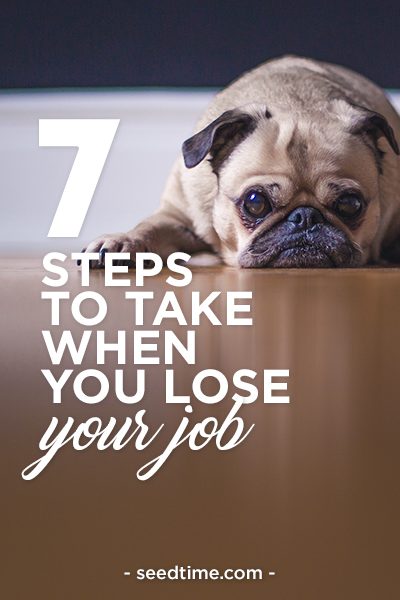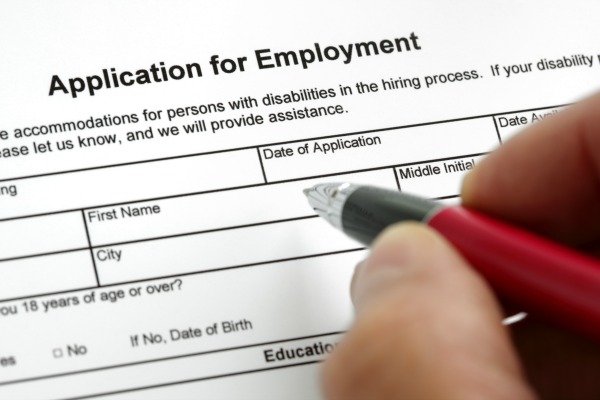 “I’m sorry. We’re going to have to let you go.”
“I’m sorry. We’re going to have to let you go.”
These words strike fear into the hearts of wage earners across the U.S. every day.
What if it happens to you? Do you know what to do?
Two months ago my husband lost his job. It was tempting to panic, knowing our family had just lost its primary source of income.
But we’ve been through this before. My husband works in sales, and sales jobs are not very reliable. Over the years we’ve learned what needs to be done from the moment you lose your job.
If you’re facing unemployment, take a deep breath. Then take the following steps to maximize your chances of being back in the workforce soon.
Tell Everyone You Know
Talking about your recent unemployment might be the last thing you want to do. But fight the temptation to keep quiet. Now is the time to network with everyone you know.
Your friends and family don’t want to see you suffer in unemployment. If you let them know you’re looking for a job, they will help you look. You may discover unadvertised job openings or leads on jobs you never would have found otherwise.
The other thing friends and family often do is provide you with opportunities to earn a little extra cash to keep you afloat while you’re looking for a good job. A small $200 job may not seem like much, but it will buy groceries for your family.
File for Unemployment
File for unemployment as soon as you lose your job. Even if you file right away, red tape may slow down your ability to collect benefits. You want to get those kinks worked out before you really need the money.
To qualify for unemployment benefits, you need to have lost your job through no fault of your own, and you need to meet your state’s requirements for collecting unemployment.
If you’re unsure, just file. The state will let you know if you don’t qualify.
Note: If you have a great business idea, check to see if your state has Self Employment Assistance Program for unemployed people who want to start their own business. Sometimes you can get unemployment benefits while you get your business up and running.
Rules vary, and the program isn’t available in all states, so contact your employment office for more information.

Update Your Resumé
Since you will need a resumé to apply for most jobs, take a day or two to create a resumé or update an old one.
Besides updating your work history, make sure you note any significant professional achievements, additional training you’ve completed, and any professional organizations you’ve joined.
Also edit your resumé to use active verbs and up to date jargon for your profession.
While you’re updating your resumé also contact potential references, so you will have references ready if a potential employer asks. Update your LinkedIn profile, too, as more and more businesses are asking potential employees to apply with LinkedIn these days.
Hit the Streets (or the Internet)
When you’re unemployed, your main goal is to get a job. So work at finding a job like it is your full time job.
Every day check sites like Indeed.com, Career Builder, Linkedin, Craigslist, and your state’s employment website to get job leads. Then follow up on those leads.
Spend most of your time on job search related tasks. The more time you put into finding a job, the more likely you are to find a job quickly.

Cut Your Expenses
While you’re out of a job, even if you’re receiving unemployment benefits, chances are the benefits won’t cover all the line items in your regular budget.
To make your money last longer during these uncertain times, audit your bills. Decide where you can make budget cuts and trim your budget to the bare minimum.
Can you cut out cable? Save money on groceries? Switch to a more inexpensive cell phone plan?
If money gets really tight, you’ll need to prioritize which bills get paid first. Housing, food, and electricity are important. Paying your credit card bills will necessarily fall to the bottom of your priorities.
If you do have to stop paying bills for a time, be sure to contact your creditors to keep them in the loop. They’re much more likely to work with you, if you keep them informed of your situation.
Take Care of Yourself
When you’re worried about finding a job and making ends meet, it’s easy for the stress to consume your life. And when you’re paralyzed by stress, it’s hard to make good decisions regarding your job search and your finances.
Make sure you take care of your health. Eat well. Get plenty of sleep. Exercise. All of these things will help your frame of mind so you’re prepared for any job interviews that come your way.
Trust God
Your job loss is no surprise to God. He knew it was coming, and he has a plan to take care of you and your family. He loves you, and he’s not going to let you fall through the cracks.
During this time, you may not be able to have everything you want, but God has promised to provide what you need (Philippians 4:19).
Ask God for wisdom and direction. It may be that your job loss is the catalyst God is using to make some major changes in your life.
Facing unemployment is never fun. But like any trial, unemployment grows and stretches us. It helps us to place our full dependence on God.
Our family has faced unemployment a few times over the years. After the trial is over, we’ve always been able to look back, amazed at how God worked through the situation. I pray that you can do the same.




